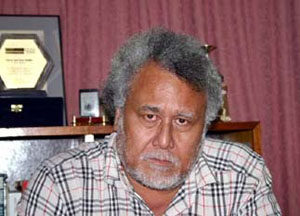
APIA (Radio NZ International / Pacific Media Watch): Samoa’s Law Reform Commission office has received reference from the prime minister and the Attorney-General to review the need for a body to regulate the local media and to make recommendations.
The call comes after the British Thomson Foundation helped fund a project for the local Journalists Association of Samoa (JAWS) six years ago to put together a media code of practice and to form a media council body.
The national media code has never been endorsed by most media outlets as well as the local mainstream media since it was completed which some senior journalists believe is the result of the government considering to regulate the media.
The Law Reform Ccommission is calling for submissions before the end of January.
Why media council delay: JAWS Samoa Observer, 19 December 2011
Several factors are responsible for the delay in setting up a media council in Samoa, the president of the Journalists Association of (Western) Samoa (JAWS) told the Sunday Samoan.
King among them is the lack of funds, said Papali’i Uale Papali’i, who is also the government’s Press Secretary.
Papali’i’s opinion was sought following a challenge from Prime Minister, Tuilaepa Sailele Malielegaoi for JAWS to set up a media council.
“Each individual member of JAWS pays a subscription of $10 a year and media organisations pay yearly fee of $50 a year,” he said.
Limited funds
The president was unsure about the number of members but said the funds collected are not enough.
“A media council is a very expensive body and JAWS is not a money-generating body,” he said. “As a result of this lack of finance, when we celebrate press freedom on 3rd of May every year, the organisation goes back to the UNESCO for funds.”
Papali’i said JAWS has struggled to unite media organisations in Samoa on the issue of the media council.
“If there is no support from the media in Samoa, then what is the purpose of establishing a media council here?” he asked.
Papali’i said one key media organisation, which he declined to name, refused to have anything to do with a media council.
“This is a good example of why there is uncertainty in the establishment of a media council,” he said.
“There is also no law to make the participation in a media council compulsory.”
Savea warns JAWS
Last month, the Samoa Observer newspaper rejected the idea. Editor-in-chief, Savea Sano Malifa warned JAWS to desist from setting up such a council.
He said there is no guarantee the council would be independent. He also warned that the prime minister now wants to control the private media through the media council.
Papali’i agreed that the media council must be independent.
“It has to be,” he said. “There is no government, religious or cultural influence over the control of a media council. The media council is a self-regulatory body and it must be trustworthy.”
Papali’i said it was important to have a council to monitor the standards of news reporting. He said members of the public must feel confident they have a body they lodge complaints with if they are unhappy with the media.
“The council is also for the protection of media organisations,” he said.
The president said the issue would be discussed when JAWS held its annual general meeting next year.
(cc) Creative Commons
Media, 'crooked stories' and aid - column by the Samoa Observer's editor-in-chief Savea Sano Malifa



